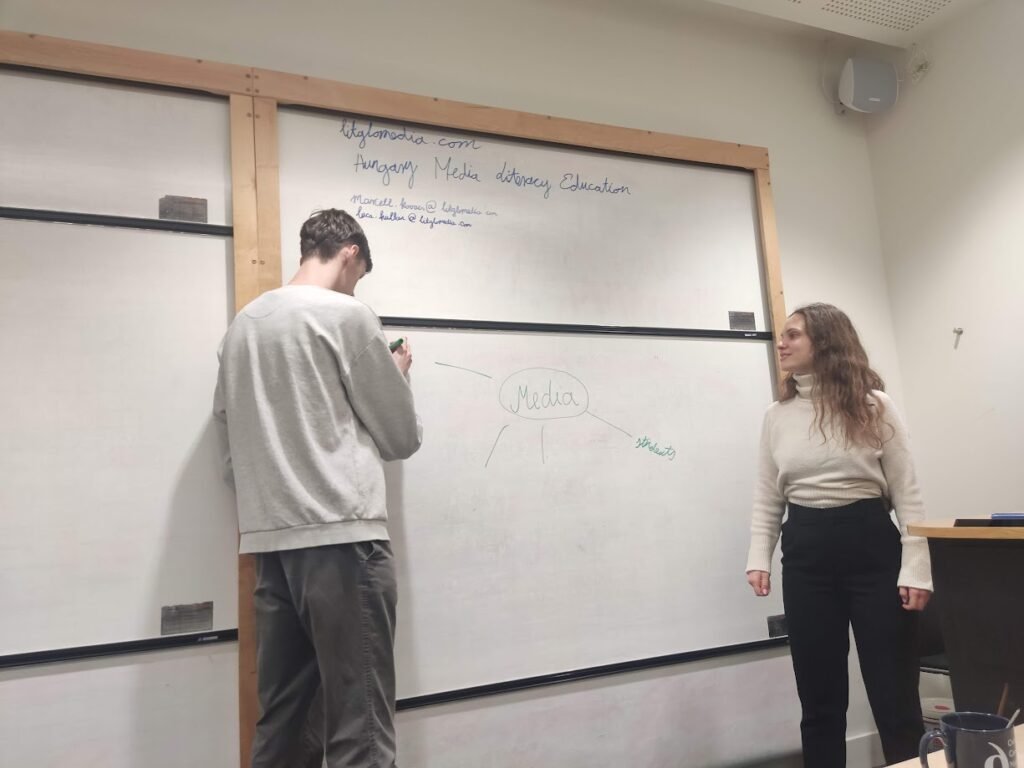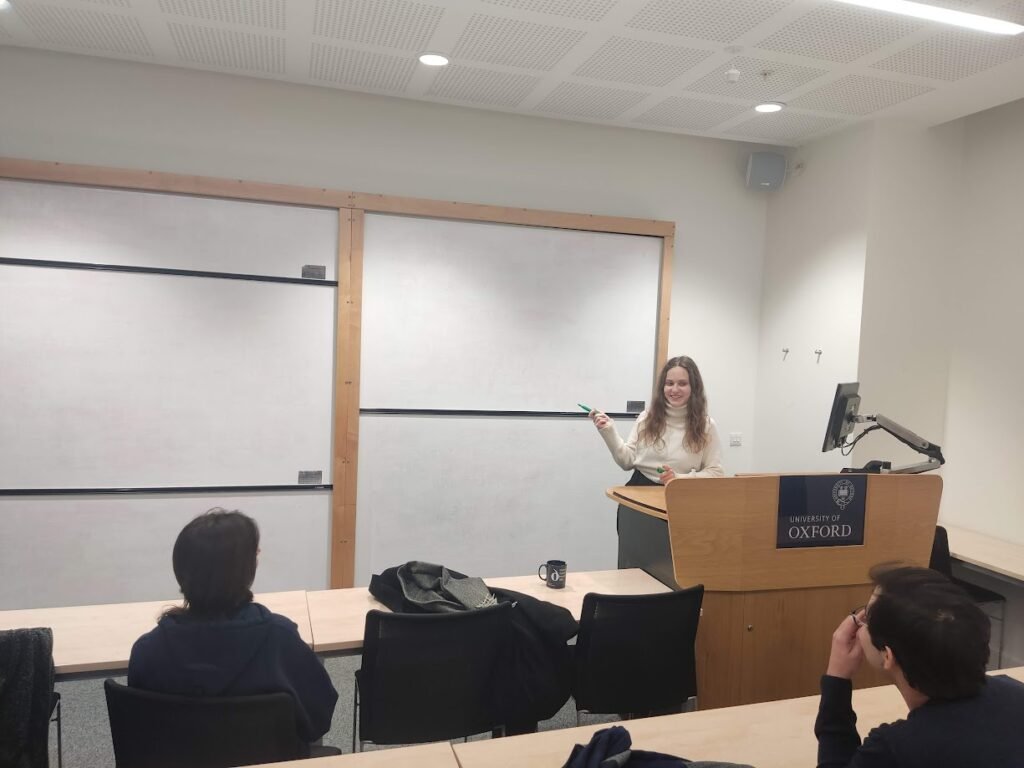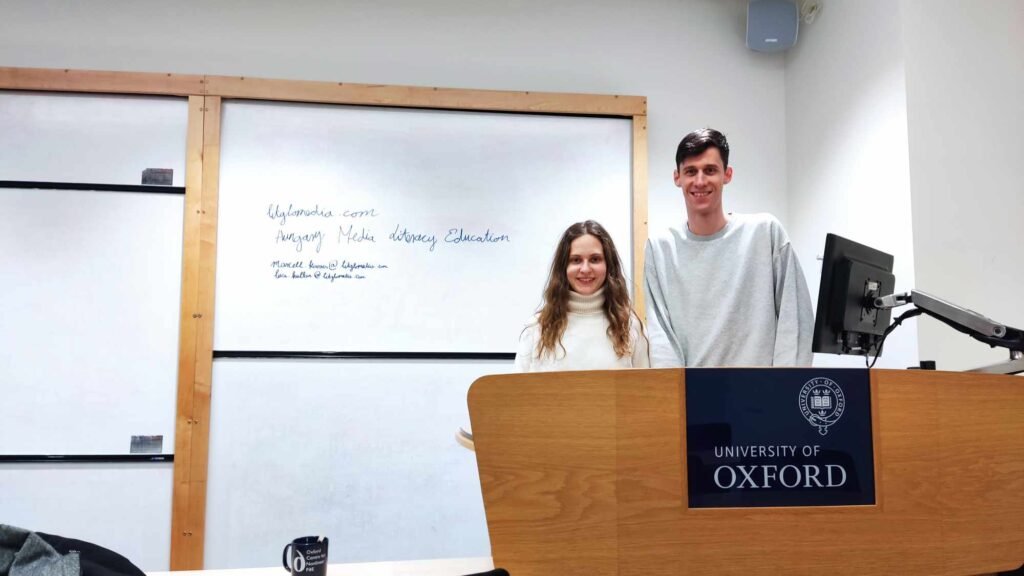
During our recent meeting at the prestigious University of Oxford, we had the chance to present our media literacy project. We engaged in rich discussions exploring media literacy’s significance, current challenges, and the ways we can improve media literacy education within high schools in Hungary. Our main goal was to gain insights into best practices from the UK educational system and apply them within our own educational context.
We emphasized the paramount importance of media literacy in a world driven by technological advancements and information overload. Students with heightened media literacy can differentiate trustworthy sources from misleading ones and avoid falling prey to the detrimental effects of online misinformation. We outlined contemporary challenges like the proliferation of “fake news”, deepfakes, targeted advertising and its ethical implications, and the potential of “filter bubbles” to isolate individuals within limited viewpoints.
Our focus on a UK-Hungary approach stemmed from our strong desire to understand how British schools successfully incorporate media literacy education into their curricula. We believe that identifying transferable strategies and methodologies will help us suggest improvements for the Hungarian system. The Oxford representatives offered a fascinating angle, illuminating the often-neglected connections between math, statistics, and accurate media analysis. They underscored that understanding data visualization and statistics can be powerful tools to help decode hidden biases or manipulations within media.
One significant lesson derived from the UK experience favors a systematic, integrated approach within existing school curricula. In Hungary, while elements of media literacy feature in specific educational sectors, sustained skill development throughout students’ journeys could yield stronger overall outcomes. This implies weaving media literacy objectives into a variety of subjects, allowing them to permeate students’ broader critical thinking capabilities.
Discussions at Oxford also illuminated the often overlooked connection between mathematical thinking and robust media analysis. Hungarian curriculums would benefit greatly from the intentional inclusion of statistical literacy, data visualization, and awareness of data manipulation. Building these competencies through a dedicated focus within subjects empowers students to identify patterns, spot trends, and critically evaluate the data on which much of media relies.

Confronting the dangers of misinformation is, without question, a universal dilemma in the modern world. Both Hungary and the UK grapple with the consequences of “fake news” and deliberate digital distortion. Examining case studies from the UK – particularly around fact-checking, source scrutiny, and understanding biases behind content creation – will inform Hungary’s ongoing battles against the detrimental impact of misleading information.
The meeting highlighted a clear potential for cross-disciplinary collaboration among Hungarian educators. Mirroring the Oxford example, partnerships between specialists in fields like educational technology, mathematics, and the social sciences would enrich media literacy initiatives with necessary depth and perspective. Such collaborations ensure that these essential competencies are taught with appropriate attention to their social, cognitive, and technical undercurrents.
Moreover, successful media literacy education often prioritizes experiential learning. Hungarian instructors could adopt UK models emphasizing student-driven research projects, the active creation of media, and in-depth analysis of current events. This shift away from purely theoretical lessons toward greater engagement is highly likely to inspire genuine curiosity and lasting investment in the media literacy skillset among Hungarian youth.
This cross-national exchange has been extremely fruitful for our project. The insights gained during the meeting have empowered us with newfound knowledge and connections. Ultimately, we aspire to address existing gaps in Hungarian media literacy, leading to a well-informed and critically engaged generation.
Oxford, 2024. 01. 21.
Written by: Marcell Kovács
